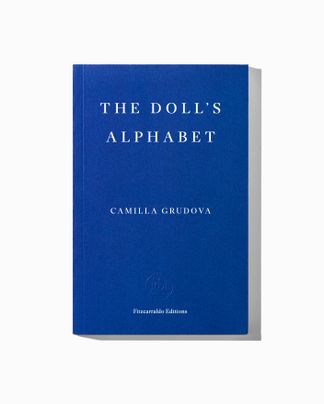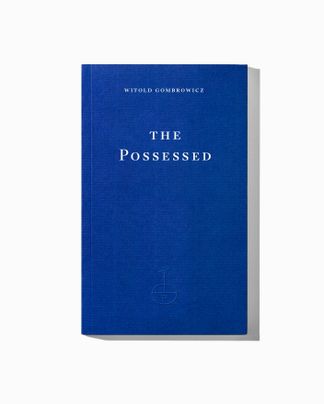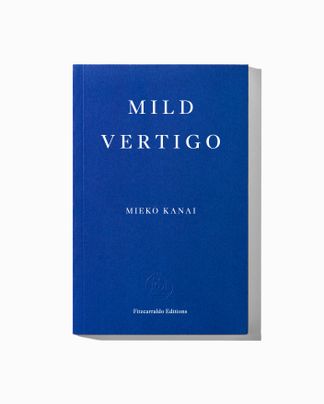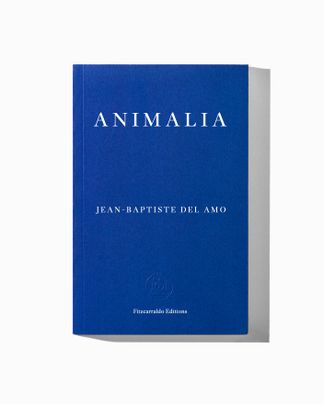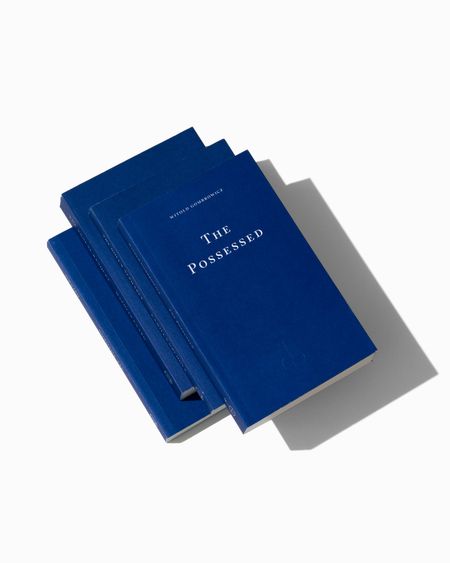In the mountainous city of Nevers, there lives a professor of literature called Q. He has a dull marriage and a lacklustre career, but also a scrumptious collection of antique dolls locked away in his cupboard. And soon Q lands his crowning acquisition: a music box ballerina named Aliss who tantalizingly springs to life. Guided by his mysterious friend Owlish and inspired by an inexplicably familiar painting, Q embarks on an all-consuming love affair with Aliss, oblivious to the sinister forces encroaching on his city and the protests spreading across the university that have left his classrooms all but empty. Thrumming with secrets and shape-shifting geographies, Dorothy Tse’s extraordinary debut novel is a boldly inventive exploration of life under repressive conditions.
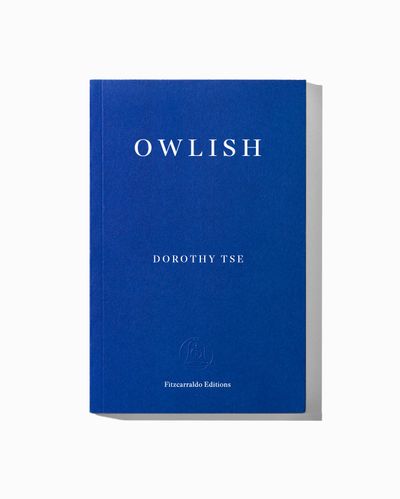
Owlish
Translated by Natascha Bruce
French paperback with flaps, 224 pages | Audiobook read by Jennifer Leong
Published 23 February 2023
Owlish
Translated by Natascha Bruce
0
Love is blind, as the saying goes. Although, in the case of Professor Q, it would be more accurate to say that love had rearranged his vision.
Which would explain why, on that gluey winter afternoon, with the air weighing heavily on his brain, when Professor Q gazed as usual through the stainless steel grille over his narrow little window, he didn’t see the ocean. Nor did he note the emergence of a razor-sharp sun, slicing the water into thousands of glassy splinters, or the continued existence of the bright, soldierly dredgers that were always working in the bay, their mechanical arms flexing up and down into the seabed. No, what Professor Q saw was the city he had lived in for many years swelling into a head, then slowly rotating to show him its other face.
He didn’t notice this face at first. He was preoccupied by thoughts of a five-digit number, which was linked somehow to an old friend of his. The two of them had once been very close but now the friend seemed shadowy and small, like a cockroach hidden in a dark corner of his memory, feebly waving its antennae. He extended a finger and carefully tapped the number into the keypad of his new smartphone. His hand was tensed, as though opening a safe. No: as though setting the code on a bomb. It couldn’t be a phone number, he thought. If it ever had been, it would be disconnected by now; it was three digits shorter than the ones currently used in Nevers. And yet, when he pushed the button to dial, the call connected, making his heart thump wildly.
‘So, you remember me at last!’
A laugh sounded down the line. The voice was so distant and shady, so full of echoes, it could have been coming from inside a damp cave. After the laugh, the head outside the window finished its turn towards Professor Q. Then he saw a pair of long, slender, birdlike eyes, a mouth that was widening into a grin, and a pile of messy hair. Owlish! Could this really be Owlish? How could he have forgotten him for all this time?
‘I’m in a spot of trouble.’
As he spoke, Professor Q realized he sounded almost cheerful. He was reconnecting with an old friend and, already, he felt as though his situation was starting to improve. He was half-a-century old, embroiled in his very first extramarital affair, and everything suddenly seemed much less terrible than he’d been imagining. His bland, uneventful life finally contained something worth talking about. This was cause for celebration, surely? He poured the tale of his twilight romance into the phone, after which Owlish chuckled heartily, then suggested paths that had never before occurred to the professor.
‘What you need is a love nest.’
A love nest? Owlish’s words appeared in Professor Q’s mind as a map. The lines and contours of this map resembled the Nevers he knew, except many of the roads and districts had names he hadn’t heard before. When he thought of Nevers, it was all sunshine, dusty glass and the smell of banknotes, but the place Owlish described was heavy metals, damp cloth, the scent of plastic. He gripped his phone and looked out at the sea, partially hidden behind his dark green curtain. His old friend’s face was blurry again. The sunlight bouncing off the water turned vicious and stabbed at his eyes, forcing them into a squint.
‘This is the place. All those secrets you’ve been storing up for all these years, now there’s a home for them. Not just for your lover; for anything you need to keep quiet. Cram it all in!’
Professor Q mouthed the address Owlish gave him, feeling as though it was in a foreign language, the words just meaningless sounds. He pulled a pen without a cap from his pen pot and jotted the sounds on a home improvement magazine, in the corner of an advertisement for watches. After ending the call, he realized the dried-up ballpoint had failed to leave any ink on the paper, although the grooves of his handwriting were there, passing right through the glossy page and appearing as raised outlines on the other side. Running his callused fingers over the surface felt intensely erotic.
(…)
Times Literary Supplement Books of the Year 2023 | Big Issue Books of the Year 2023
‘[A] surreal fantasy and the reading experience is demanding … you might ask yourself if it’s worth the effort. On reaching the end you will surely conclude that it is…. [It] is a very brave book.’
— David Mills, The Times
‘It’s tempting to call Owlish a fantasy, or an anti-fairytale. The book is not shy of drawing in references, including to Mephistopheles, Kant, the Brothers Grimm, Lewis Carroll, Kafka, Orwell and Tchaikovsky’s Swan Lake. However, Tse’s acerbic, freewheeling spirit is generically flirtatious, rather than genre-bound. She steals from the western canon with chutzpah and panache to create a subversive tale about perilous desire, high-rise bureaucracy and sophisticated corruption in a defenceless city under siege.… Owlish wittily captures a recent crisis moment in Hong Kong, exploring a discombobulating state caught between civilisation and its discontents.’
— Kit Fan, Guardian
‘In Owlish, nimbly translated by Natascha Bruce, there are several nods to Franz Kafka and Tse offers a powerful vision of government repression…. Tse combines the banal and the fantastic to terrific effect. Full of striking imagery, Owlish is a vertiginous tale of a people sleepwalking into catastrophe.’
— Lucy Popescu, Financial Times
‘Beguilingly eerie, richly textured, the pages of Owlish are drenched in strange beauty and menace. Like all the best fairy tales, it reveals the dark truths that we would rather not look at directly, and does so with a surreal and singular clarity.’
— Sophie Mackintosh, author of Cursed Bread
‘Dorothy Tse is a magnificent historian of unreal places. Her sage and serious characters are cast adrift in realities that are neither sage nor serious at all – and possibly impossible. Her parallel worlds and paradoxes brilliantly illuminate our own reality, with all its fictions masquerading as facts (and vice versa). Boundlessly creative, richly philosophical – I loved this book.’
— Joanna Kavenna, author of Zed
‘A magical and potent tale for these tyrannical times.’
— NoViolet Bulawayo, author of Glory
‘Tse joins the ranks of artists currently remaking the world, from Yoko Tawada to César Aira.’
— Joyelle McSweeney, author of Toxicon and Arachne
‘Owlish is so delightfully creepy, wonderful and strange.’
— Camilla Grudova, author of Children of Paradise
‘A bold, brilliantly absorbing read. This clever, mercurial portrait of an alternate Hong Kong lingers long after the last page.’
— Irenosen Okojie, author of Nudibranch
‘Owlish [is] a darkly sexual sociopolitical fable…. Tse’s excellent novel becomes increasingly bizarre.’
— Hal Jensen, TLS
‘Owlish is the story of a city as much as it is the story of Q. Between his correspondence with a strange figure known only as Owlish and a ballerina figurine who has come to life, the professor is immersed and distracted enough not to notice the city and his university emptying out around him as the political situation deteriorates and falls into chaos. Tse’s style in Owlish, with its magical elements, suggests a more overtly political Italo Calvino, or Salman Rushdie with a lighter touch … the story is engrossing and the prose, translated by the always satisfying Natascha Bruce, a delight.’
— Jessa Crispin, Telegraph
‘Owlish … has been translated into a playful and sinuous English by Natascha Bruce.… It is as though the book, with its ellipses and obstructed messages, were depicting the reality-warping effects of an uncanny, constraining force – a force like state censorship.’
— Katy Waldman, New Yorker
‘[A] brilliantly unsettling fairytale.’
— Katie Goh, i-D
‘Owlish is both lyrical and disturbing, erotic and absurd. Bruce captures the lyricism and surrealist humour of a talented author in her deft translation.’
— Brigid O’Dea, Irish Times
‘In Owlish Tse makes a compelling spectacle; demonstrating the price of apathy during oppressive administrations, suggesting how we might resist the unspeakable mechanisms of regime. She crafts a wondrous hinterland in her writing, imagining the waiting worlds we might dream ourselves into – if we try.’
— Annie Hayter, BIG ISSUE
‘Owlish bears witness to a dream state, to a place where language doesn’t always work quite how it should, where the boundaries of deviance, obedience, and desire blur. Caught within these shades of reality, the automata whirs. A cranking becomes faintly audible. Tse weaves a kind of visceral, bodily syntax full of openings and shrouded things; tantalising always, whether for us or for our hero.’
— Marguerite Carson, The Skinny
‘In short, glimmering chapters, Owlish … nimbly translated by Natascha Bruce, reveals how the loss of freedom divides people from one another and from themselves. Tse’s novel is playful, poetic and devastating – a reminder that surrealist writing is not unreal, but the most real way of depicting the nightmare of living under tyranny.’
— Irina Dumitrescu, Times Literary Supplement
Dorothy Tse is a writer from Hong Kong. Her debut novel, Owlish, was a finalist for the National Book Critics Circle Gregg Barrios Book in Translation Prize, and her short story collection, Snow and Shadow, was longlisted for the Best Translated Book Award. A cofounder of the literary journal Fleurs des Lettres, she has received the Hong Kong Book Prize, the Hong Kong Biennial Award for Chinese Literature, and Taiwan’s Unitas New Fiction Writers’ Award.
Natascha Bruce translates fiction from Chinese. Her work includes novels and story collections by Yeng Pway Ngon, Patigül, Ho Sok Fong and Can Xue. Her translation of Owlish by Dorothy Tse received a 2021 PEN/Heim grant. She lives in Amsterdam.

